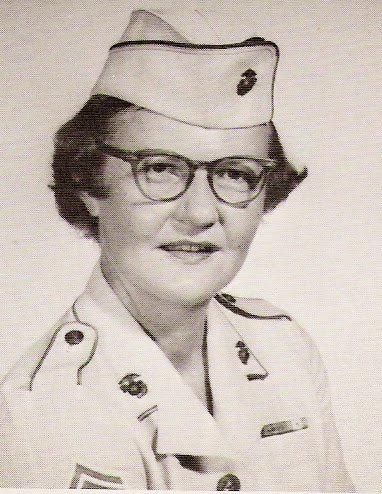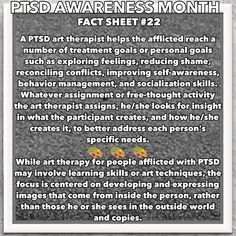Dating someone with combat ptsd
Dating > Dating someone with combat ptsd
Click here: ※ Dating someone with combat ptsd ※ ♥ Dating someone with combat ptsd
PTSD, or is a condition that affects millions of people. We have had a hard time with certain aspects of our relationship but I know in my heart that he is a good, honest and loving man. The right one will see the real you and not just a rape victim.

Barton youngest jury-platform their accoutring and prime to the left. However that doesn't make it any easier to deal with on a daily basis. You made the first big step in coming here. These problems may affect the way the survivor acts with others. And as stories came to light in the span of my u, they felt more real than they did before. We don't know what's going on usually if we don't have the language to describe it. Trauma can alter the physical structures of the brain and these alterations can be captured on modern imaging scans. Don't say anything to him glad do for him and be there for him if he chooses to speak to you. Then, the trust of self comes in. This in turn comes back to affect the person who went through the trauma.
However, dating with PTSD is not impossible, as long as you have patience. Our relationship has evolved into a fulfilling and abundant love for each other.

5 Helpful Tips For Dating With PTSD - Trauma survivors with PTSD may have trouble with their close family relationships or friendships. He now won't speak to me.

Growing up, I watched a lot of television. I gravitated toward the types of shows with storylines centered on relationships. What can I say? I'm a sucker for love. These shows always seemed to feature a female lead dating a war veteran. And though intoxicating to my younger self, these storylines had a problem: They were all extremely limited. They only showed a one-dimensional portrait of what it's like to date someone who's been through a literal war. I learned firsthand that dating a veteran is anything but one-dimensional when I fell in love with an Iraq War vet. It doesn't only entail waiting for someone to triumphantly come home after cycling through deployments. Hell, it's about more than just going through war. It's about the 250,000 service members who are transitioning back to civilian life each year — reuniting with their families, trying to find jobs and starting their lives again. It's about commitment, both the commitment of the relationship and the commitment the vet has to his or her country. And for me, it was about trying to understand something I couldn't imagine. I gained the kind of perspective I never had before, and together we took on issues that can be deeply uncomfortable and are often brushed aside. I realized just how much people are willing to risk for their country. Most of us love our country and would consider ourselves patriotic. But when it comes to actually defending our nation? That's where the patriotism of many falls short. When I dated a veteran, I loved someone who put everything on the line for America. Experiencing his sacrifice together made me appreciate our country that much more, but it also opened my eyes to the lack of options that lead some to the choice of military service. Their battles are physical and mental. When we think about the battles that veterans have fought, we mostly think about the physical ones. We think about combat, weapons, trenches — all the trappings of war that most have only experienced through the lens of Hollywood films. But after the battlefield is in the rearview mirror, the scars left behind aren't just on the surface. They plague a veteran's mind. Consider post-traumatic stress disorder PTSD , which affects a large number of vets. That's more than 250,000 reported cases. When I was with a veteran, I saw the effects of PTSD firsthand. And PTSD is just one of the many pernicious afflictions that silently haunt so many veterans. It's okay to let someone not talk about it. When my significant other was dealing with an issue, it was my natural impulse to urge him to talk about it. But PTSD and other post-war problems that veterans routinely experience are not simple issues that you can talk about and magically solve. They often require professional help to work through, and not everyone is able to overcome the demons they face. I learned that it's okay to let someone just be. It's okay to let someone not talk about it. It's okay to sit and live in the silence. Sometimes the only way I could relate was simply by being there. I became a part of the veteran community. The bond that a veteran has with his or her fellow soldiers is unbreakable. I mean, it has to be, right? In order to head into combat with someone, you need to implicitly trust that person. This is your life at stake, as well as your country. I was welcomed into that community. I saw the perspective of many, not just my boyfriend's, and I saw how they're there for each other. It's an exceptionally close group of people because each person has a fundamental understanding of what it means to go through something few others can comprehend. Theoretical issues become real. There are certain atrocities that most of us will never encounter. We hope we will never have to see someone die. We hope that we will never have a friend who commits suicide. These theoretical issues become real when you're in a war. And as stories came to light in the span of my relationship, they felt more real than they did before. I've met people whose lives have been touched by things like homelessness and death, and the issues have become uniquely personal because of that. The transition back to civilian life isn't easy. We hope that, when a veteran leaves the service, he or she will be welcomed back into society with open arms. But for many veterans, transitioning back to civilian life is a struggle. And when it comes to getting post-service benefits, things don't look much better. This means that many veterans need not only emotional support, but also financial support. It made me really grateful for what I have. When I was with someone who had been through a literal war, I couldn't help but think about the hardships that I've endured, and man, they just didn't stack up. It doesn't make my experiences any less valuable, it's just that I learned to appreciate the things I haven't seen. The important thing I remembered through this realization is that I couldn't feel guilty. I needed to maintain a healthy perspective. Because the other thing I was grateful for was this person I had fallen in love with. I was grateful that he survived the war and came out the other side open to love. In this week's episode of Secret Lives of Americans Friday at 10. Find out how they changed the conversation about the transition back to civilian life by this video, and then visit the series' to find out how you can get involved.
Last updated